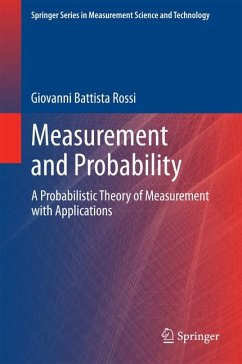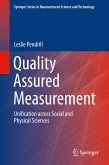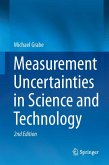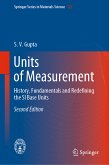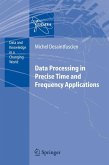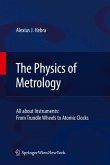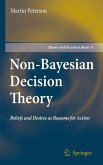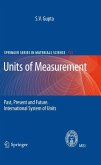A theoretical framework that could truly be shared by scientists in different fields, ranging from physics and engineering to psychology is developed. The future in fact will require greater collaboration between science and technology and between different sciences. Measurement, which played a key role in the birth of modern science, can act as an essential interdisciplinary tool and language for this new scenario.
A sound theoretical basis for addressing key problems in measurement is provided. These include perceptual measurement, the evaluation of uncertainty, the evaluation of inter-comparisons, the analysis of risks in decision-making and the characterization of dynamical measurement. Currently, increasing attention is paid to these issues due to their scientific, technical, economic and social impact. The book proposes a unified probabilistic approach to them which may allow more rational and effective solutions to be reached.
Great care was taken to make the text as accessible as possible in several ways. Firstly, by giving preference to as interdisciplinary a terminology as possible; secondly, by carefully defining and discussing all key terms. This ensures that a wide readership, including people from different mathematical backgrounds and different understandings of measurement can all benefit from this work. Concerning mathematics, all the main results are preceded by intuitive discussions and illustrated by simple examples. Moreover, precise proofs are always included in order to enable the more demanding readers to make conscious and creative use of these ideas, and also to develop new ones.
The book demonstrates that measurement, which is commonly understood to be a merely experimental matter, poses theoretical questions which are no less challenging than those arising in other, apparently more theoretical, disciplines.
Dieser Download kann aus rechtlichen Gründen nur mit Rechnungsadresse in A, B, BG, CY, CZ, D, DK, EW, E, FIN, F, GR, HR, H, IRL, I, LT, L, LR, M, NL, PL, P, R, S, SLO, SK ausgeliefert werden.
"The book is addressed to specialists who deal with measurements in engineering work, metrology and scientific research. The chapter with some applications to acoustical measurements might be of special interest for acousticians and for those who calibrate acoustical instrumentation. ... Through the whole content, with numerous references in each chapter, the book of Giovanni Battista Rossi is a very valuable text, recommended to all those who are connected to the theory and practice of measurements." (Valentin Buzduga, Noise Control Engineering Journal, Vol. 62, December, 2014)

